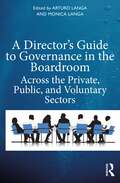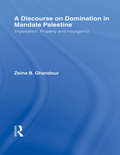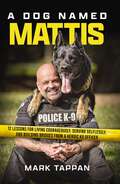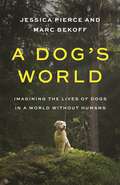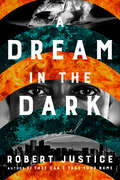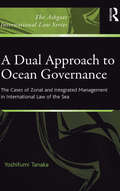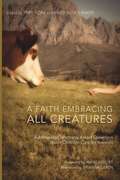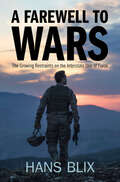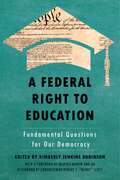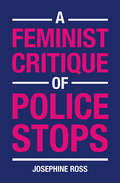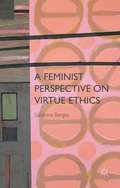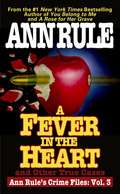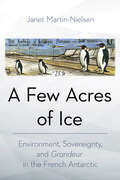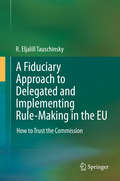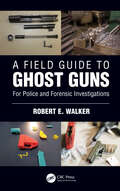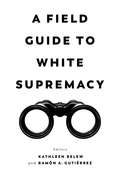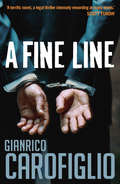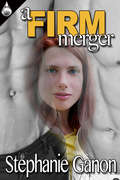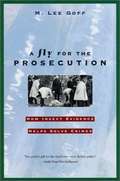- Table View
- List View
A Director's Guide to Governance in the Boardroom: Across the Private, Public, and Voluntary Sectors
by Arturo LangaThis book is a practical guide for executive and non-executive directors and aspiring directors to lead, govern, and steer UK-based organisations to long-term sustainable success. In today’s turbulent environment, corporate governance is increasingly scrutinised, and this book will consider how directors can ‘bring the future forward’ with respect to responsible and ethical governance and leadership against the challenging political, environmental, and economic backdrop. While other books discuss UK corporate governance, this one uniquely demonstrates how the work of directors can build an organisation’s antifragility, and offers a view of stewardship approaches to every sector and type of UK organisation, from large premium listed companies to start-ups, the public sector, not-for-profits, partnerships, and family-owned and private-equity-backed organisations. Aspiring and experienced directors will each benefit from this book as well as those who provide board evaluation services, professional advisers, auditors, and those who provide training and other support for board members.
A Director's Guide to Governance in the Boardroom: Across the Private, Public, and Voluntary Sectors
by Arturo LangaThis book is a practical guide for executive and non-executive directors and aspiring directors to lead, govern, and steer UK-based organisations to long-term sustainable success. In today’s turbulent environment, corporate governance is increasingly scrutinised, and this book will consider how directors can ‘bring the future forward’ with respect to responsible and ethical governance and leadership against the challenging political, environmental, and economic backdrop. While other books discuss UK corporate governance, this one uniquely demonstrates how the work of directors can build an organisation’s antifragility, and offers a view of stewardship approaches to every sector and type of UK organisation, from large premium listed companies to start-ups, the public sector, not-for-profits, partnerships, and family-owned and private-equity-backed organisations. Aspiring and experienced directors will each benefit from this book as well as those who provide board evaluation services, professional advisers, auditors, and those who provide training and other support for board members.
A Discourse on Domination in Mandate Palestine: Imperialism, Property and Insurgency
by Zeina B. GhandourBritish discourse during the Mandate, with its unremitting convergence on the problematic ‘native question’, and which rested on racial and cultural theories and presumptions, as well as on certain givens drawn from the British class system, has been taken for granted by historians. The validity of cultural representations as pronounced within official correspondence and colonial laws and regulations, as well as within the private papers of colonial officials, survives more or less intact. There are features of colonialism additional to economic and political power, which are glaring yet have escaped examination, which carried cultural weight and had cultural implications and which negatively transformed native society. This was inevitable. But what is less inevitable is the subsequent collusion of historians in this, a (neo-) colonial dynamic. The continued collusion of modern historians with racial and cultural notions concerning the rationale of European rule in Palestine has postcolonial implications. It drags these old notions into the present where their iniquitous barbarity continues to manifest. This study identifies the symbolism of British officials’ discourse and intertwines it with the symbolism and imagery of the natives’ own discourse (from oral interviews and private family papers). At all times, it remains allied to those writers, philosophers and chroniclers whose central preoccupation is to agitate and challenge authority. This, then, is a return to the old school, a revisiting of the optimistic, vibrant rhetoric of those radicals who continue to inspire post and anti-colonial thinking. In order to dismantle, and to undo and unwrite, A Discourse on Domination in Mandate Palestine holds a mirror up to the language of the Mandatory by counteracting it with its own integrally oppositional discourse and a provocative rhetoric.
A Discourse on Property: John Locke and his Adversaries
by James TullyJohn Locke's theory of property is perhaps the most distinctive and the most influential aspect of his political theory. In this book James Tully uses an hermeneutical and analytical approach to offer a revolutionary revision of early modern theories of property, focusing particularly on that of Locke.
A Dog Named Mattis: 12 Lessons for Living Courageously, Serving Selflessly, and Building Bridges from a Heroic K9 Officer
by Mark TappanTake a ride-along with Sergeant Mark Tappan and his amazing K9 partner Mattis, whose heroic actions will inspire you to live courageously, serve selflessly, and love passionately because every human (and dog) has a purpose.Sergeant Mark Tappan shares a unique bond with his K9 partner Mattis, one of the most decorated police K9s of all time. Mark knew from the first time they interacted that Mattis was something special. As a man of deep faith, Mark also knew that God's most profound teaching often comes through the most unexpected sources, and he soon realized that Mattis was going to teach him about loyalty, selfless service, and so much more.In A Dog Named Mattis, Mark shares twelve life lessons he's learned from working with Mattis. Through these first-hand accounts of bravery and service, you will learn profound lessons, like:being willing to 'go all in' and work with all your heart even when things are uncertain,how persistence pays off when you are willing to stick with what you know is right,how to be strong and courageous in the face of adversity,and much more. You will also get a behind-the-scenes look at the world of police K9s and gain a deeper understanding of:the many ways that K9 units assist police departments,what a K9 officer's daily life looks like,what kind of training police dogs and their handlers must go through,how a police dog is tested and selected,and the lengths a dog will go to in order to complete their mission. A Dog Named Mattis will capture the hearts of dog lovers everywhere and remind you that true success is built on relationships filled with trust, communication, and love.
A Dog's World: Imagining the Lives of Dogs in a World without Humans
by Marc Bekoff Jessica PierceFrom two of the world’s leading authorities on dogs, an imaginative journey into a future of dogs without peopleWhat would happen to dogs if humans simply disappeared? Would dogs be able to survive on their own without us? A Dog’s World imagines a posthuman future for dogs, revealing how dogs would survive—and possibly even thrive—and explaining how this new and revolutionary perspective can guide how we interact with dogs now.Drawing on biology, ecology, and the latest findings on the lives and behavior of dogs and their wild relatives, Jessica Pierce and Marc Bekoff—two of today’s most innovative thinkers about dogs—explore who dogs might become without direct human intervention into breeding, arranged playdates at the dog park, regular feedings, and veterinary care. Pierce and Bekoff show how dogs are quick learners who are highly adaptable and opportunistic, and they offer compelling evidence that dogs already do survive on their own—and could do so in a world without us.Challenging the notion that dogs would be helpless without their human counterparts, A Dog’s World enables us to understand these independent and remarkably intelligent animals on their own terms.
A Dream in the Dark (A Wrongful Conviction Novel #2)
by Robert JusticeWith striking prose and inspired by real wrongful conviction cases, this layered takedown of the criminal justice system follows one woman&’s quest for answers as the fate of an innocent man hangs in the balance, perfect for fans of S. A. Cosby.Denver, 1992. Claudette Cooper and Moses King have been failed by the justice system. Claudette was sexually assaulted and brutally attacked—blinded by the perpetrator, she&’s not able to identify him until she has a dream about the attack where she sees the face of Moses King. When Claudette testifies that she&’s identified her attacker from her dream, Moses is wrongfully convicted and sent to prison for the crime.Lawyer Liza Brown has seen firsthand the failings and shortcomings of the justice system—her father also suffered the injustice of a wrongful conviction. As she&’s working at a nonprofit to free those who have been wrongfully imprisoned, Moses reaches out to her. Liza sees the obvious cracks in the evidence against Moses, and when he confesses that he knew her father, she&’s determined to help. Recruiting her old friend Eli Stone to assist, Liza sets out to prove Moses&’s innocence. But Eli is dealing with demons of his own: corrupt cops are targeting Black residents of Denver, and when his nephew is beaten by the police, Eli doubles down on his efforts to expose them.Frustrated, Liza turns to Moses&’s accuser, Claudette, for help. But Claudette is hiding a dark secret, and as tensions in Denver rise, the city erupts in protests and riots. This rich, impactful novel paints a portrait not only of injustice and desperation—but of hope.
A Dual Approach to Ocean Governance: The Cases of Zonal and Integrated Management in International Law of the Sea (The Ashgate International Law Series)
by Yoshifumi TanakaTaking the North-East Atlantic Ocean as an example of regional practice, this book addresses the dual approach to ocean governance in international law. It examines the interaction between zonal and integrated management approaches and the conservation of marine living resources and marine biological diversity. The study examines the limitations of the traditional zonal approach and suggests new possibilities for conformity between sovereign states, international law and sustainable development.
A Faith Embracing All Creatures: Addressing Commonly Asked Questions About Christian Care For Animals
by Tripp York Andy Alexis-BakerWhat is the purpose of animals? Didn't God give humans dominion over other creatures? Didn't Jesus eat lamb? These are the kinds of questions that Christians who advocate compassion toward other animals regularly face. Yet Christians who have a faith-based commitment to care for other animals through what they eat, what they wear, and how they live with other creatures are often unsure how to address these biblically and theologically based challenges. In A Faith Embracing All Creatures, authors from various denominational, national, ethnic, and cultural backgrounds wrestle with the text, theology, and tradition to explain the roots of their desire to live peaceably with their nonhuman kin. Together, they show that there are no easy answers on "what the Bible says about animals." Instead, there are nuances and complexities, which even those asking these questions may be unaware of. Editors Andy Alexis-Baker and Tripp York have gathered a collection of essays that wrestle with these nuances and tensions in Scripture around nonhuman animals. In so doing, they expand the discussion of nonviolence, peacemaking, and reconciliation to include the oft-forgotten other members of God's good creation.
A Farewell to Fragmentation
by Mads Andenas Eirik BjorgeFragmentation has been much discussed as a threat to international law as a legal system. This book contends that the fragmentation of international law is far exceeded by its convergence, as international bodies find ways to account for each other and the interactions of emerging sub-fields. Reasserting its role as the 'principal judicial organ of the United Nations', the International Court of Justice has ensured that the centre of international law can and does hold. This process has strengthened a trend towards the reunification of international law. In order to explore this process, this book looks at fragmentation and convergence from the point of view of the centre of the International Court and of the position of other courts and tribunals. Featuring contributions by leading international lawyers from a range of backgrounds, this volume proposes both a new take and the last word on the fragmentation debate in international law.
A Father's Love: One Man's Unrelenting Battle to Bring His Abducted Son Home
by David GoldmanIn June, 2004, Goldman's estranged wife took their four-year-old son Sean to her native Brazil for what she said would be a two-week vacation. Once there she informed Goldman that she was staying in Brazil, setting off an international, headline-making custody battle that waged for five years.
A Federal Right to Education: Fundamental Questions for Our Democracy
by Kimberly Jenkins RobinsonHow the United States can provide equal educational opportunity to every child The United States Supreme Court closed the courthouse door to federal litigation to narrow educational funding and opportunity gaps in schools when it ruled in San Antonio Independent School District v. Rodriguez in 1973 that the Constitution does not guarantee a right to education. Rodriguez pushed reformers back to the state courts where they have had some success in securing reforms to school funding systems through education and equal protection clauses in state constitutions, but far less success in changing the basic structure of school funding in ways that would ensure access to equitable and adequate funding for schools. Given the limitations of state school funding litigation, education reformers continue to seek new avenues to remedy inequitable disparities in educational opportunity and achievement, including recently returning to federal court. This book is the first comprehensive examination of three issues regarding a federal right to education: why federal intervention is needed to close educational opportunity and achievement gaps; the constitutional and statutory legal avenues that could be employed to guarantee a federal right to education; and, the scope of what a federal right to education should guarantee. A Federal Right to Education provides a timely and thoughtful analysis of how the United States could fulfill its unmet promise to provide equal educational opportunity and the American Dream to every child, regardless of race, class, language proficiency, or neighborhood.
A Feminist Critique of Police Stops
by Josephine RossA Feminist Critique of Police Stops examines the parallels between stop-and-frisk policing and sexual harassment. Law professor Josephine Ross trained teenagers to protect their rights only to discover that our constitutional rights are a mirage. In reality, we can't say no when police seek to question or search us. Building on feminist principles, Ross demonstrates why the Supreme Court got it wrong when it allowed police to stop, search and sometimes strip-search people and call it consent. Using a wide range of sources - including her law students' experiences with police, news stories about Eric Garner and Sandra Bland, social science and the work of James Baldwin - Ross sheds new light on how police use stop-and-frisk to threaten and marginalize vulnerable communities. This book should be read by everyone interested in how Court-approved police stops sap everyone's constitutional rights and how this form of policing can be eliminated.
A Feminist Perspective on Virtue Ethics
by Sandrine BergesA Feminist Perspective on Virtue Ethics provides of historical survey of feminist virtue ethics, and shows how the ethical theorizing of women in the past can be brought to bear on that of women in the present.
A Fever In The Heart: And Other True Cases (Ann Rule's Crime Files #3)
by Ann RuleAnn Rule's "great knack for horrific detail" (New York "Daily News" ) was briliantly displayed in "A Rose for Her Grave" and "You Belong to Me," the first two volumes of her Crime File series. Now, in "A Fever in the Heart, " she dissects a fascinating case centered around an alluring young wife and the two men desperate for her love...an explosive triangle of thwarted desire that led to obsession and murder in a small northwestern town. As the crimes that initially baffled police finally give up their shocking secrets, the story leads us to a denoument as bizarre as anything ever uncovered in the annals of true crime. Sharing other riveting cases from her personal files, Ann Rule masterfully examines the delusions of the criminal mind, the shattering passions that explode into murder, and the relentless efforts of law enforcers to ferret out the deadly truth.
A Few Acres of Ice: Environment, Sovereignty, and "Grandeur" in the French Antarctic
by Janet Martin-NielsenA Few Acres of Ice is an in-depth study of France's complex relationship with the Antarctic, from the search for Terra Australis by French navigators in the sixteenth century to France's role today as one of seven states laying claim to part of the white continent. Janet Martin-Nielsen focuses on environment, sovereignty, and science to reveal not only the political, commercial, and religious challenges of exploration but also the interaction between environmental concerns in polar regions and the geopolitical realities of the twenty-first century.Martin-Nielsen details how France has worked (and at times not worked) to perform sovereignty in Terre Adélie, from the territory's integration into France's colonial empire to France's integral role in making the environment matter in Antarctic politics. As a result, A Few Acres of Ice sheds light on how Terre Adeìlie has altered human perceptions and been constructed by human agency since (and even before) its discovery.
A Fiduciary Approach to Delegated and Implementing Rule-Making in the EU: How to Trust the Commission
by R. Eljalill TauschinskyThis book focuses on the evaluation of delegated and implementing rule-making, based on Articles 290 and 291 TFEU. These articles have attracted considerable attention since their introduction in 2009, and their implementation is one of the most hotly debated questions in European Administrative Law. The book takes up this timely topic, discusses it in an innovative way and offers valuable new insights. Delegated and implementing acts are the most common form of EU legal acts. However, despite their ubiquity and relevance, it is unclear how the Commission’s powers to adopt these important acts relates to subjects’ democratic rights. Accordingly, the book explores the question of how the Commission’s powers to adopt delegated and implementing acts can be justified. The relationship between the Commission and the persons within the Member States who are directly affected by its rule-making should be seen, the book argues, as one of institutional trust, and as a result as a fiduciary relationship. The book begins by defining the theoretical conditions for a justificatory approach, before explaining the background and foundations of fiduciary law. It then links this theoretical perspective with the realities of delegated and implementing acts, describing how the various roles in fiduciary relationships map onto the rule-making process that produces delegated and implementing acts, and explains how the fundamental tenet of fiduciary relationships – loyalty – can be included in the rule-making process.
A Field Guide to Ghost Guns: For Police and Forensic Investigations
by Robert E. WalkerWhile it has always been legal for a citizen in the United States to manufacture their own firearm, the sale and distribution of such items is illegal under current U.S. law. The primary impediment to individuals making their own weapons has been access to the tooling and machinery required to convert raw materials into finished parts for assembly. However, in the last fifteen years this paradigm has changed drastically. Home builders and companies have emerged to support individuals who choose to produce their own firearm. Kits with receivers and gun components are available for hobbyists, as are 3-D printable gun designs, downloadable from the Internet in some cases. This phenomenon has led to the term ghost guns: firearms whose existence is not reported to any third party and therefore whose existence is unknown and, largely, untraceable. A Field Guide to Ghost Guns: For Police and Forensic Investigators provides a useful brief for field investigators on the technical aspects of the self-made firearm, so-called "ghost guns. The first book to focus on the emergent issue of ghost guns, coverage addresses the history of firearms making and manufacture in the U.S.—including regulated and nonregulated manufacturing, details firearm components and accessories, how to assemble a Firearm, an overview of common Types of ghost guns, and investigative considerations. Though there have been increased calls to regulate guns in the wake of numerous mass shootings, the proliferation of ghost guns—and their increasing use in crimes—would likely require additional laws and regulatory measures. Since there are few knowledgeable firearm practitioners in the field, who can render qualified opinions on the subject, author Robb Walker has taken a practical, pragmatic approach to the topic. The book defines terminology, provides photographs, and explains the concepts surrounding homemade firearm in clear, easy to understand terms. Key Features: Addresses the technology and technical aspects in creating, assembling, and/or modifying homemade firearms—both printable and assembled from pre-fabricated components Discusses the rationale and motivations behind making one’s own firearm Outlines what is currently legal and illegal under U.S. law, providing indicators for investigators for illegally configured firearms A Field Guide to Ghost Guns addresses the pressing need for a practical reference on the topic. The book provides police investigators and forensic ballistics experts a useful aid to understand legal aspects and to identify ghost guns, and the paraphernalia—tooling and machinery, and otherwise—indicative of gun making in a non-formal, factory setting.
A Field Guide to White Supremacy
by Kathleen Belew and Ramón A. GutiérrezDrawing explicit lines, across time and a broad spectrum of violent acts, to provide the definitive field guide for understanding and opposing white supremacy in America Hate, racial violence, exclusion, and racist laws receive breathless media coverage, but such attention focuses on distinct events that gain our attention for twenty-four hours. The events are presented as episodic one-offs, unfortunate but uncanny exceptions perpetrated by lone wolves, extremists, or individuals suffering from mental illness—and then the news cycle moves on. If we turn to scholars and historians for background and answers, we often find their knowledge siloed in distinct academic subfields, rarely connecting current events with legal histories, nativist insurgencies, or centuries of misogynist, anti-Black, anti-Latino, anti-Asian, and xenophobic violence. But recent hateful actions are deeply connected to the past—joined not only by common perpetrators, but by the vast complex of systems, histories, ideologies, and personal beliefs that comprise white supremacy in the United States. Gathering together a cohort of researchers and writers, A Field Guide to White Supremacy provides much-needed connections between violence present and past. This book illuminates the career of white supremacist and patriarchal violence in the United States, ranging across time and impacted groups in order to provide a working volume for those who wish to recognize, understand, name, and oppose that violence. The Field Guide is meant as an urgent resource for journalists, activists, policymakers, and citizens, illuminating common threads in white supremacist actions at every scale, from hate crimes and mass attacks to policy and law. Covering immigration, antisemitism, gendered violence, lynching, and organized domestic terrorism, the authors reveal white supremacy as a motivating force in manifold parts of American life. The book also offers a sampling of some of the most recent scholarship in this area in order to spark broader conversations between journalists and their readers, teachers and their students, and activists and their communities. A Field Guide to White Supremacy will be an indispensable resource in paving the way for politics of alliance in resistance and renewal.
A Field Guide to a Happy Life: 53 Brief Lessons for Living
by Massimo PigliucciA brilliant philosopher reimagines Stoicism for our modern age in this thought-provoking guide to a better life.For more than two thousand years, Stoicism has offered a message of resilience in the face of hardship. Little wonder, then, that it is having such a revival in our own troubled times. But there is no denying how weird it can be: Is it really the case that we shouldn't care about our work, our loved ones, or our own lives? According to the old Stoics, yes.In A Field Guide to a Happy Life, philosopher Massimo Pigliucci offers a renewed Stoicism that reflects modern science and sensibilities. Pigliucci embraces the joyful bonds of affection, the satisfactions of a job well done, and the grief that attends loss. In his hands, Stoicism isn't about feats of indifference, but about enduring pain without being overwhelmed, while enjoying pleasures without losing our heads. In short, he makes Stoicism into a philosophy all of us -- whether committed Stoics or simply seekers -- can use to live better.
A Financial Centre for Two Empires
by David C. Donald Jefferson P. Vanderwolk Wang Jiangyu David C. Donald Jefferson P. VanderwolkThis is a case study of legal transplant, economic development, cultural adaptation and political integration. Hong Kong's journey from British entrepôt to China's international financial centre is one of the most interesting legal stories of our time. But Hong Kong's future is even more interesting: will this region with British-origin institutions survive full integration into China and become its permanent international financial centre? Does Hong Kong have the legal infrastructure to compete effectively with Shanghai and Singapore, and even New York and London? A Financial Centre for Two Empires presents Hong Kong's story, examines its corporate economy and securities market, assesses its corporate, securities and tax laws for doctrinal soundness and appropriate remedies, and evaluates the quality of their enforcement empirically. It closes with a view of Hong Kong from the perspective of developments in Beijing and Shanghai, including an examination of the important political dimension.
A Fine Line
by Howard Curtis Gianrico Carofiglio"A FINE LINE is a terrific novel, a legal thriller that is also full of complex mediations on the life of the lawyer and the difficult compromises inherent in any system of criminal justice. A book that is intensely rewarding at many levels."Scott TurowThe fifth in the best-selling Guido Guerrieri series. When Judge Larocca is accused of corruption, Guerrieri goes against his better instincts and takes the case. Helped by Annapaola Doria, a motorbike-riding bisexual private detective who keeps a baseball bat on hand for sticky situations, he investigates the alleged links to the mafia. Of course Guerrieri cannot stop himself from falling for Annapaola's exotic charms.The novel is a suspenseful legal thriller but it is also much more. It is the story of a judge who, to quote Dostoevsky, "lies to himself and listens to his own lies, so gets to the point where he can no longer distinguish the truth, either in himself or around himself."
A Firm Merger
by Stephanie GanonWorking at a law firm has taught Emily Dawson a thing or two about mergers and acquisitions. This serves her well when the two men she's dating learn about each other. It's time for a compromise that will satisfy them all!For nearly a year, Emily Dawson has quietly dated two men, Nick Scott and William Drake--both smart, attractive and great in bed. Because they all work at the same law firm, her various needs are met at a moment's notice. During an out-of-town business trip, the men put their heads together and discover their girlfriend has two boyfriends. But when Nick and William confront Emily about her refusal to commit to a relationship, an unusual compromise is reached--one that satisfies them all. Content Notes: Partner sharing; gay sex
A Fly For The Prosecution: How Insect Evidence Helps Solve Crimes
by M. Lee GoffThe forensic entomologist turns a dispassionate, analytic eye on scenes from which most people would recoil--human corpses in various stages of decay, usually the remains of people who have met a premature end through accident or mayhem. To Lee Goff and his fellow forensic entomologists, each body recovered at a crime scene is an ecosystem, a unique microenvironment colonized in succession by a diverse array of flies, beetles, mites, spiders, and other arthropods: some using the body to provision their young, some feeding directly on the tissues and by-products of decay, and still others preying on the scavengers. Using actual cases on which he has consulted, Goff shows how knowledge of these insects and their habits allows forensic entomologists to furnish investigators with crucial evidence about crimes. Even when a body has been reduced to a skeleton, insect evidence can often provide the only available estimate of the postmortem interval, or time elapsed since death, as well as clues to whether the body has been moved from the original crime scene, and whether drugs have contributed to the death. An experienced forensic investigator who regularly advises law enforcement agencies in the United States and abroad, Goff is uniquely qualified to tell the fascinating if unsettling story of the development and practice of forensic entomology.
